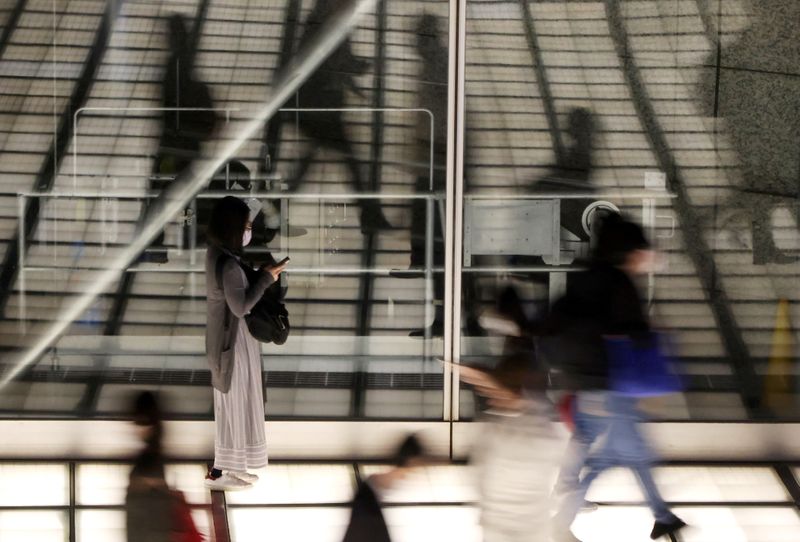By Leika Kihara and Daniel Leussink
TOKYO (Reuters) -Tokyo will not host its motor show this year because of the global pandemic, organizers said on Thursday, underscoring Japan's struggle to contain both a resurgent outbreak and the widening economic fall-out.
The cancellation comes as the government is expected to issue a third state of emergency for Tokyo and a number of other prefectures that could last for about two weeks, according to media reports.
The halting of the auto show, a marquee event of the country's most important industry, is also likely to raise more questions about the government's insistence that the delayed Tokyo Olympics will go ahead this summer.
The chairman of the Japan Automobile Manufacturers Association, Akio Toyoda, said the group felt it was difficult to provide a safe environment amid surging coronavirus cases. The show is normally held around late October to early November.
Such cancellations are bad news for an economy that, like many around the world, has been badly hit by the pandemic. Some analysts said another state of emergency could push Japan back into recession if retailers are asked to close during the Golden Week holidays, which start next week and run through early May.
"The risk of a double-dip recession has clearly heightened," said Hiroshi Shiraishi, senior economist at BNP Paribas (OTC:BNPQY) Securities. "The impact of imposing curbs on Tokyo and Osaka alone would be quite big."
Japan has so far avoided an explosive spread of the pandemic that has plagued many Western countries, with total cases so far at about 540,000 and a death toll of 9,707. But the latest rise in infections has stoked alarm, coming just three months before the planned start of the Tokyo Olympics and amid a sluggish vaccination roll-out.
Tokyo 2020 organizers said a policeman who worked with the Olympic torch relay in western Kagawa prefecture had tested positive for the virus.
STRONGER CURBS
With thousands of new cases resulting from highly infectious strains of the virus, Prime Minister Yoshihide Suga said on Wednesday the government will decide this week whether to declare the state of emergency for major parts of the country.
The governors of Tokyo's neighbouring Saitama, Chiba and Kanagawa prefectures will request the same emergency measures as the capital, the Nikkei newspaper reported. Four western prefectures are also seeking emergency measures, media have reported, bringing businesses in the large swathes of the country under tighter operating hours.
The government is considering imposing the curbs from April 25 to May 11, Jiji news agency reported. It is also expected to weigh stronger curbs than those issued last time in January, such as requests for department stores and other big retailers to close.
"We need to take stronger and more targeted steps than before including requests (for shops) to close," Economy Minister Yasutoshi Nishimura was quoted as saying by Kyodo news agency on Thursday.
Tokyo reported 861 new cases on Thursday, the most since Jan. 29 during the third wave of the pandemic and previous state of emergency. Osaka prefecture reported 1,167, down slightly from a record.
Japan's economy has emerged from last year's severe slump thanks to robust exports.
But analysts expect GDP to have shrunk in the first quarter due to the hit to consumption from the second emergency curbs that rolled out in January and say a second consecutive contraction in Q2 that would constitute a recession is possible.

"The timing is not good," as it would hit service spending during the spring leisure season, said Takumi Tsunoda, senior economist at Shinkin Central Bank Research Institute, of the latest curbs.
Tsunoda cut his forecast for second-quarter GDP to a 0.5% quarter-on-quarter rise, half the previously projected pace.